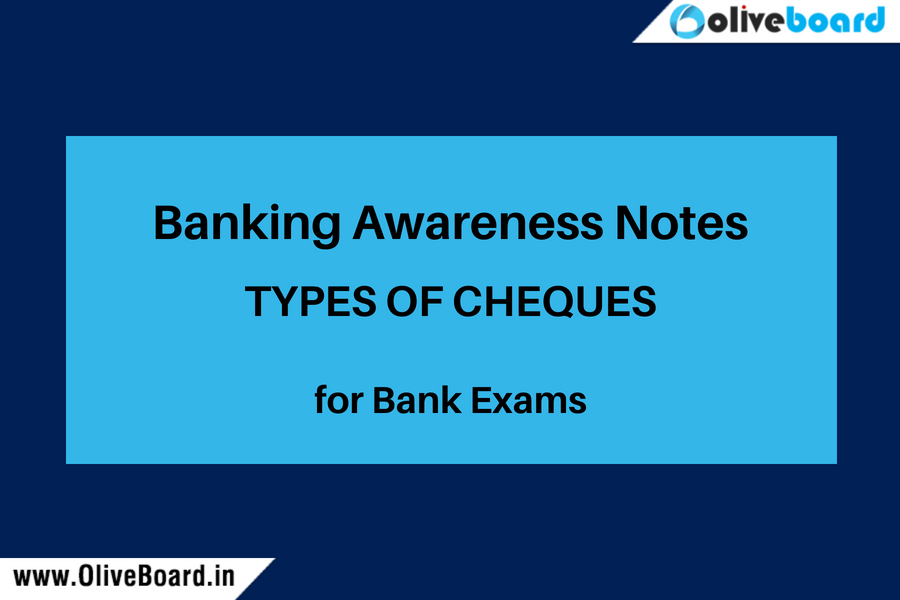Transactions through cheques are quite common these days. This is also one of the important topics of banking awareness for IBPS exams. In this post we would be covering the various types of cheques.
What is a CHEQUE ?
Cheques are a type of bill of exchange and were developed as a way to make payments without the need to carry large amounts of money. It is a document that orders a bank to pay a specific amount of money from a person’s account to the person in whose name the cheque has been issued. The person writing the cheque is known as a drawer. The amount is transferred only to the person to whom a cheque is addressed.
There are various types of cheques and these are described in the following sections.
– Bearer Cheque
One can locate the words “or bearer” appearing on a cheque leaf. If these words are NOT struck out, the cheque is known as a bearer cheque. What this means is that the person holding the cheque can withdraw the amount i.e. anyone who presents it to the bank can withdraw.
Hence these cheques are a little risky. In case these are misplaced, anyone who finds it can get the money. It is also known as an “open” cheque.
– Order Cheque
A cheque becomes an “order” cheque, either when the words “or bearer” are struck off or when in its place, the words “or order” is written on the cheque. Such a cheque is payable only to the person whose name is mentioned / specified as ” payee “.
Thus, these checks are relatively safe. One also has the provision of authorising someone for collecting the amount on their behalf.
– Crossed Cheque
Crossing a cheque refers to drawing two parallel lines on the cheque with or without additional words like “& CO.” or “Account Payee” or “Not Negotiable”.
By using a crossed cheque, one can make sure that the amount specified cannot be en-cashed but can only be credited to the payee’s bank account.
– Anti-Dated Cheque
If the date mentioned on a cheque is earlier than the date on which it is presented to the bank, the cheque is known as an “anti-dated cheque“. This cheque is valid upto three months from the mentioned date.
– Post-Dated Cheque
If the date mentioned on a cheque is yet to come (future date), the cheque is known as a “post-dated cheque“.. A post dated cheque is not valid earlier than the date mentioned on the cheque.
– Stale Cheque
As we mentioned, cheques are valid for 3 months from the mentioned date. If a cheque is presented for payment after this period of three months, it is then called stale cheque. A stale cheque is not honoured by any bank.
Hope this helps.
All the best!

The most comprehensive online preparation portal for MBA, Banking and Government exams. Explore a range of mock tests and study material at www.oliveboard.in

